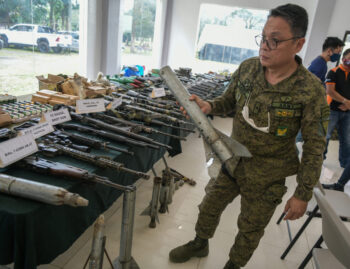
ZAMBOANGA CITY (MindaNews / 4 Sept)—Over the weekend, we had the chance joining a group of peace, gender, special education, alternative learning system, Muslim education and indigenous peoples’ education coordinators from the Divisions of Zamboanga City and Lamitan City. The event took place at a lay formation center, which provided an ideal environment for reflection and introspection. The exchange of ideas and discussions during the gathering was cordial and productive.
Beyond this gathering, the multitude of trees were full of nooks and corners. After the day’s task, I had the chance to take shade and reflect. As an HRM/D specialist in my master’s degree, I pondered how many professional development programs in government and even the private sector have taken a negative detour.
During my tenure as the Assistant Secretary for Administration, Finance, and Operations in DepEd-ARMM, I noticed a breed of employees that I refer to as “training tourists.” They moved from one training to another, frequently attending our out-of-town sessions. They merely registered their names, disappeared during sessions, and only showed up at the venue during meal times. These individuals were also known as early leavers, often ending up in malls for strolls and shopping. They nagged the training staff for reimbursement and certificates, even though these concerns were being addressed.
In many of these training programs, they were representatives, not official participants. This became evident when they were assigned tasks during workshops; they argued that they were only representing their superiors and, therefore, merely informed them of the tasks instead of accomplishing them.
The allure of out-of-town training programs has become the norm for both participants and organizers. In addition to fulfilling their office tasks, they often take advantage of local festivals, promotions, and the novelty of the location chosen as their training venue. This trend persists, despite calls for conducting such training within our region to stimulate the local economy. Unfortunately, this preference for distant locales creates a disconnect between the training content and the attendees’ focus.
Furthermore, discussions about future training venues resemble discussions about choosing destinations for leisure visits, shopping, and touring.
The certificate chase has been exacerbated by the issuance of blank certificates. The absence of a centralized database for tracking all training and participants has further exacerbated the situation, with opportunistic staff selling blank certificates for a fee. As a result, individuals seeking promotions often resort to using bogus certificates for training they never attended. This shift in focus has turned career prospects and promotions into games centered around certificates rather than proficiency and fake certificates instead of mastered skills. This has cultivated a culture that values credentials over competencies. Additionally, the presence of out-of-agency training providers and awarding bodies catering primarily to certificate and award seekers further complicates the issue.
All these factors contribute to what Dr. Laurence J. Peter, a sociologist, lecturer, and business consultant, observed and later coined as the “Peter Principle,” which states that in a hierarchy, every employee tends to rise to their level of incompetence. This learning paradox can have long-term negative effects on both job satisfaction and performance.
How can we adopt a more balanced approach to professional development? How do we break free from this growing trend of training tourists and escape the vicious cycle? What strategies can we implement to refocus on knowledge acquisition, align training programs with organizational goals, and emphasize the significance of lifelong learning? How can we transition from a heavy reliance on certificates in promotion criteria to more explicit competence-based standards? What alternative methods of skill assessment can organizations implement?
(MindaViews is the opinion section of MindaNews. Noor Saada is a Tausug of mixed ancestry—born in Jolo, Sulu, grew up in Tawi-Tawi, studied in Zamboanga and worked in Davao, Makati and Cotabato. He is a development worker and peace advocate, former Assistant Regional Secretary of the Department of Education in the Autonomous Region in Muslim Mindanao, currently working as an independent consultant and is a member of an insider-mediation group that aims to promote intra-Moro dialogue.)







